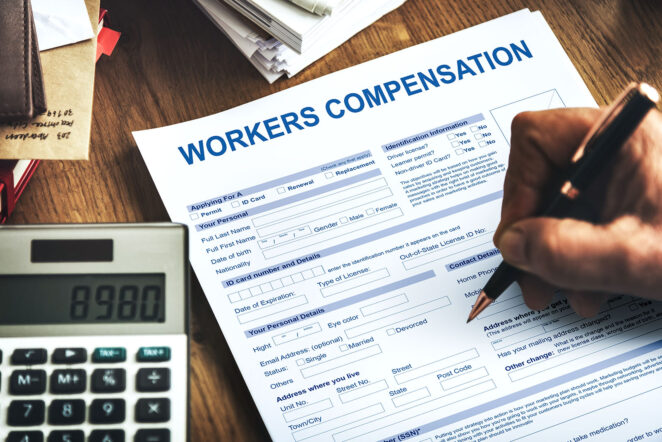In a world that has a global economy dependent on e-commerce and digital transactions, starting up a retail store may seem insane to your friends and business partners. Yet, despite the advancement in tech goods, there is a rewarding market space for traditional retail spaces, but success requires dedication and planning.
Before opening your doors for a spectacular grand opening, review the below six things you should know before opening a retail-based company.
Create a Business Plan and Stick to It
No matter what industry you operate within, a business plan is a must to help guide your company to success. It’s a road map of sorts and will outline the different goals and objectives you hope to accomplish along with the direction for achieving them.
You can initially just jot these details down on a few sheets of paper, but definitely take the time to professionally compile it into a working plan that includes insights about your market. This document is key in approaching investors for capital funding to help your retail company grow and expand.
Don’t Wing Your Financials

Creating a business comes with many costs so before you start buying supplies, your storefront, inventory, and other important details, take time to outline what expenses you’ll need to afford to open your doors.
While every retail business is unique, below are a few core expenditures you can expect to pay when first starting out in this market:
- Insurance, business permits, legal registration, and taxes
- Cost of purchasing or leasing a space
- Interior and exterior decor costs
- Utilities
- Recruitment and onboarding of employees
- Payroll and healthcare costs
- Initial inventory and supplies
- Advertising expenses
- Equipment, including IT infrastructure
- Service providers for payment processing, general bookkeeping, banking, store music, etc.
Tracking the financial metrics of your new retail business is vital to keeping your costs under control and maximizing your profitability.
If you want to open up a business in Singapore then another set of requirements and payments are needed.How to register a company name in singapore? A business name can be registered using Bizfile+ for $15. We will hold the name for 120 days after we approve your name application. The name will become available for registration by anyone if you don’t proceed to register the business or incorporate the company within this time frame. For the registration of the business name, the ACRA charges $15. The registration of the business, which costs $300, comes after the name has been registered. The sum varies for different types of applications, although $315 is the normal fee for the registration.
Treat Your Customers as More Than Just a Sale
Your consumers are the lifeblood of your business. Your products meet their needs, which they spend their hard-earned dollars to improve their lives. So while it’s important to keep sales revenue high, investing in your company more personally with your customers can achieve higher profits.
Taking a customer-centric approach is a great focus model for retail stores. You want to nurture your relationships with consumers so they will trust your brand and keep you at the forefront of their minds when needing specific goods.
This mindset works well when establishing business relationships with your vendors, too. Where would you be without a supplier? Creating a collaborative partnership can earn you better pricing and keep you in the loop about new products that would benefit your company.
Employ a Stellar Retail Team

Whether you plan to go solo and hire later or immediately build a retail team to support your operations, look for the best talent out there. These individuals will be the face of your brand and need to embody the principles and vision you have for your company.
Often, employees are the first point of contact that consumers have with a retail company, so you want workers that are excited about your products and want to please customers. However, getting suitable candidates can take time, so don’t wait to start the recruitment process until you need them.
Protect Company Interests with Business Insurance
Any business faces significant risks that threaten its survival in a competitive marketplace. From customer slips and falls to sprinkler system malfunctions destroying expensive inventory, the reasons to insure your budding retail startup are endless.
Below are some of the most popular insurance coverages that retail stores rely on to protect their financial success, employees, and customers:
Commercial General Liability

General liability insurance covers the basics for your business and is the most popular coverage starting out. Should a customer or vendor suffer an injury on your property or their personal property gets damaged by one of your employees, this policy kicks in and covers the financial consequences. However, this applies to third parties only, not you or your employees.
Commercial Property Coverage
One of the most costly losses your retail business could suffer is the destruction of your retail space and/or inventory. Commercial property insurance protects your premises from costs related to vandalism, fires, and similar hazards. This coverage is especially important if you own the building you operate out of.
Business Interruption Insurance
While commercial property policies cover damage to your stock and building, what about the income you lose while waiting for repairs to finish? Business interruption coverage helps compensate your company for part of the profits lost while your store remains closed. This can prove an invaluable lifeline to keep your enterprise afloat during this period.
Workers’ Compensation

Nearly every state has some form of workers’ compensation insurance requirement for companies that employ at least one worker or more. Failing to comply with this requirement has legal ramifications for your retail store. Worse, it leaves you financially vulnerable to all the costs related to an employee’s workplace injury.
This policy covers medical costs and lost wages a worker could suffer after getting hurt or sick on the job. It can also cover the cost of legal defense fees if an employee sues you for negligence.
Commercial Auto Insurance
Many retail chains offer delivery services or have employees use company vehicles to pick up supplies and inventory. If you plan to do the same, you must have commercial coverage for your vehicles. Personal insurance rarely, if ever, covers using cars and trucks for business purposes. A business-level policy ensures all damages to your vehicles and that of others involved in an accident with your employee are adequately covered.
Bodily injury claims are also included in these policies, so don’t risk it and get the right policy for your business.
The Bottom Line of Starting a Retail Business
While this guide doesn’t cover every aspect of opening your new retail store, it’s a good start to building a path to success. From keeping initial startup costs under control to protecting your staff, customers, and company assets from inherent risk, the future is bright for entrepreneurs in your market.
To begin the process of choosing the right coverage options for your new business, find out the cost here.



